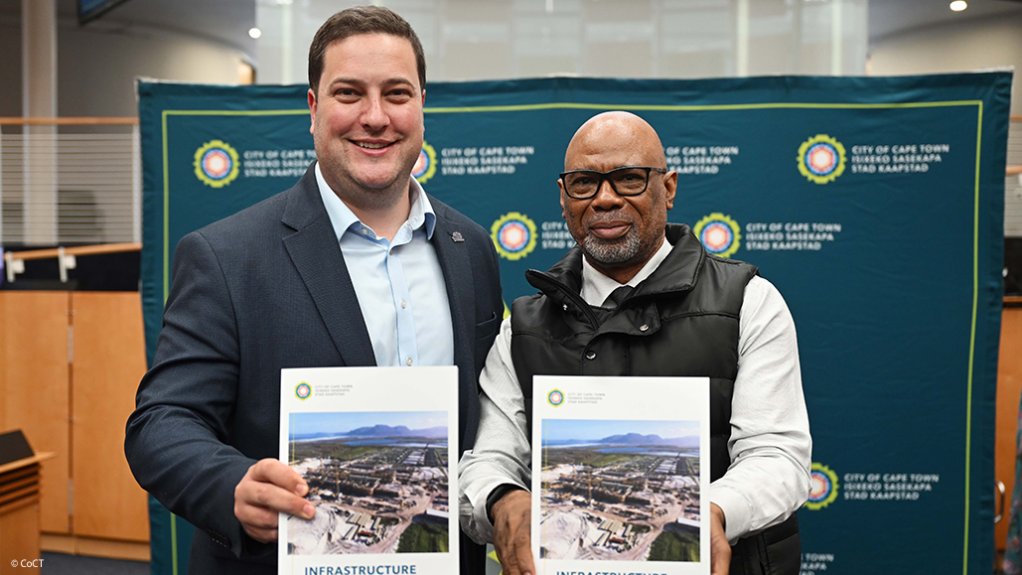Cape Town Mayor Geordin Hill-Lewis says the city will invest R43-billion in infrastructure over the next three years.
The ten-year project pipeline is valued at R120-billion.
Speaking at the launch of the city’s 2024 Infrastructure Report launch on Wednesday, Hill-Lewis said the city’s infrastructure spending was at a rate “far outpacing any other metro”, and “more than Joburg and Durban combined”.
“In fact, Nedbank’s updated Capital Expenditure Project Listing for 2023, also released this week, finds that Cape Town accounts for a full 60% of the R100-billion in overall government infrastructure projects announced last year.”
Hill-Lewis noted that the investments were necessary as Cape Town was about to surpass Johannesburg as South Africa’s most populous city, with the census confirming that Cape Town would soon be a city of five-million people.
He noted that the city’s infrastructure investments would create an estimated 135 000 jobs over the three-year period, excluding downstream economic benefits.
According to the 2024 Infrastructure Report, water and sanitation investment makes up 42% of Cape Town’s R120-billion ten-year pipeline, with multibillion-rand upgrades to seven wastewater works.
“This year we are glad to report yet another significant increase in planned investment in water and sanitation infrastructure, largely driven by our programmes to reduce sewer spills,” said Hill-Lewis.
“This includes quadrupling sewer pipe replacement to 100 km annually; and ongoing major bulk sewer upgrades in several parts of the city, including South Africa’s largest project of this kind on the Cape Flats line.”
Hill-Lewis noted that the city had also added new urban mobility projects to the outer years of its ten-year pipeline.
New projects to improve public transport, worth R21-billion, are planned along three corridors in the outer years of the next decade – Khayelitsha–Century City, Symphony Way, and Klipfontein.
“These corridors are the next major long-term investments after the completion of MyCiTi Phase 2A route servicing the metro southeast from Claremont/Wynberg to Khayelitsha/Mitchells Plain, currently the biggest infrastructure project in the Western Cape worth R5.4-billion over the next three years,” said Hill-Lewis.
The city’s New Water Programme aims to add 300-million litres of water a day from new sources by 2030.
By 2040, around 25% of Cape Town’s water should be sourced from desalination, groundwater and re-use programmes.
The city is also set to add 650 MW in independent power to the Cape Town grid by 2026/27 to protect against four stages of Eskom’s loadshedding, with the aim of adding 1 GW in time.
Also, around R5.8-billion will be invested in congestion relief road projects over the ten-year portfolio.
The City of Cape Town has also made a policy change to reduce the service radius of waste drop-off sites from 7 km to 3 km, with ten new waste drop-off facilities planned in the next ten years up to 2035.
A total of 98% of urban waste management investment will go to landfill-related projects over the next decade.
The 2024 Infrastructure Report also highlights that the land released for affordable housing over the last year should result in an estimated 1 500 new social housing units.
EMAIL THIS ARTICLE SAVE THIS ARTICLE ARTICLE ENQUIRY
To subscribe email subscriptions@creamermedia.co.za or click here
To advertise email advertising@creamermedia.co.za or click here











